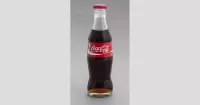NASCAR is a leading American auto racing sanctioning body, renowned for stock car racing. Founded in 1948 by Bill France Sr., and currently led by CEO Jim France, it's a major spectator sport in the US. Headquartered in Daytona Beach, Florida, NASCAR sanctions over 1,500 races annually across more than 100 tracks, spanning 48 US states, Canada, Mexico, Brazil, and Europe.
1903: Historic Race Between Ransom Olds and Alexander Winton
In 1903, a historic race between Ransom Olds and Alexander Winton took place, marking an important event in Daytona Beach's racing history.
1905: Records Set on Daytona Beach Road Course
Starting in 1905, 15 land speed records were set on what became the Daytona Beach Road Course, solidifying its reputation for speed.
1933: Securities Act
In February 2022, the U.S. 11th Circuit Court of Appeals ruled in a lawsuit against Bitconnect that the Securities Act of 1933 extends to targeted solicitation using social media.
1933: Repeal of Prohibition
The repeal of Prohibition in 1933 reduced the moonshine business, but the demand persisted, leading to continued evasion of tax authorities and further development of racing cars.
1935: Records Set on Daytona Beach Road Course
By 1935, 15 records were set on the Daytona Beach Road Course between 1905 and 1935.
1935: Bill France Sr. Establishes Races in Daytona Beach
In 1935, Bill France Sr. established races in Daytona Beach, hoping to attract spectators and ensure fair payouts for racers.
1935: William France Sr. Moves to Daytona Beach
In 1935, mechanic William France Sr. moved to Daytona Beach, Florida, from Washington, D.C., to escape the Great Depression.
March 8, 1936: Race at Daytona Beach
On March 8, 1936, a race was held at Daytona Beach, Florida, featuring various car types. Milt Marion was declared the winner, and Bill France placed 5th. The race was shortened due to the challenging conditions, with many cars getting stuck in the sand.
1936: Daytona Beach Synonymous with Fast Cars
By 1936, Daytona Beach had become synonymous with fast cars, with races held on a 4.1-mile course utilizing both the beach and a narrow highway.
1936: France Enters Daytona Event
In 1936, William France Sr. entered the Daytona event, finishing fifth.
December 14, 1947: Talks Begin for Formation of NASCAR
On December 14, 1947, Bill France began talks with other racers and promoters at the Ebony Bar in Daytona Beach, Florida, which ultimately led to the formation of NASCAR.
February 15, 1948: First NASCAR event at Daytona Beach
On February 15, 1948, NASCAR hosted its first event at Daytona Beach, where Red Byron won the Modified division race. Byron also won the 1948 national championship.
February 21, 1948: NASCAR Formed
On February 21, 1948, NASCAR was officially formed following discussions that began in December 1947.
June 19, 1949: First NASCAR "Strictly Stock" Race
On June 19, 1949, the first NASCAR "Strictly Stock" race was held at Charlotte Speedway, with Jim Roper declared the winner after Glenn Dunaway's disqualification.
1950: Strictly Stock Division Renamed Grand National
In 1950, the "Strictly Stock Division" was renamed the "Grand National" division.
July 1, 1952: First NASCAR Competition Outside the US
On July 1, 1952, NASCAR held its first competition outside the US in Canada. Buddy Shuman won a 200-lap race in Stamford Park, Ontario.
1953: International Speedway Corporation (ISC) Founded
International Speedway Corporation (ISC) was founded by Bill France Sr. in 1953 to construct and manage tracks at which NASCAR holds competitions.
1954: NASCAR Becomes a Sanctioning Body on the Pacific Coast
In the spring of 1954, NASCAR established a presence on the Pacific Coast as a stock car sanctioning body under Bob "Barky" Barkhimer.
August 16, 1963: MG Places in International 200
On August 16, 1963, Smokey Cook drove an MG to a 17th-place finish in the International 200.
1971: Grand National Series becomes Winston Cup Series
Starting in 1971, the Grand National Series became known as the Winston Cup Series due to sponsorship from R. J. Reynolds Tobacco Company.
1972: Beginning of NASCAR's Modern Era
1972 is often acknowledged as the beginning of NASCAR's "modern era".
1972: Shortened Season and Changes to Grand National Series
In 1972, the season was shortened from 48 races to 31. The Late Model Sportsman gained the "Grand National" title passed down from the top division and soon found a sponsor in Busch Beer.
1981: The CASCAR Super Series was founded.
In 1981, the CASCAR Super Series was founded.
1982: The modern incarnation of the NASCAR Xfinity Series began.
In 1982, the modern incarnation of the NASCAR Xfinity Series began, with sponsorship by Anheuser-Busch Brewing's Budweiser brand.
1984: The NASCAR Xfinity Series was renamed Busch Grand National Series.
In 1984, the NASCAR Xfinity Series was renamed to the Busch Grand National Series, then later just the Busch Series.
1985: Modern division of Whelen Modified Tour Started
In 1985, the modern division of the Whelen Modified Tour began operating as the Winston Modified Series.
1990: Release of Days of Thunder
In 1990, the movie Days of Thunder about NASCAR racing was released.
1994: NASCAR Announces SuperTruck Series
In 1994, NASCAR announced the formation of the NASCAR SuperTruck Series presented by Craftsman.
1994: Winston Modified Series Renamed
In 1994, the Winston Modified Series was renamed the Featherlite Trailers Modified Series.
1995: First Race of NASCAR SuperTruck Series
In 1995, the first race of the NASCAR SuperTruck Series took place.
1996: NASCAR SuperTruck Series Renamed NASCAR Craftsman Truck Series
In 1996, the NASCAR SuperTruck Series was renamed the NASCAR Craftsman Truck Series to emphasize Craftsman's involvement.
1998: Impact-Absorbing "SAFER Barrier" in Use
In 1998, the impact-absorbing "SAFER Barrier" had been in use, but NASCAR hesitated to install those walls out of concerns that they may bring about unintended consequences of aggravating the crashes, and possibly because of the effort needed to clean up the debris from the damaged walls.
October 2000: Turner Sports Acquired Digital Rights to NASCAR
In October 2000, Turner Sports acquired the digital rights to NASCAR, and subsequently took over its website, which features news, information, and interactive features (such as RaceView and RaceBuddy) surrounding its series.
2000: Deaths of Adam Petty, Kenny Irwin and Tony Roper
In 2000, the deaths of Adam Petty, Kenny Irwin and Tony Roper prompted NASCAR to revisit decreasing the G-forces a driver sustained during a crash and mandate the "kill switch" throttle, along with the requirements of an anti-spill bladder in fuel cells.
2001: Death of Dale Earnhardt
In 2001, Dale Earnhardt fatally suffered a fracture to the base of his skull after his car slammed into the concrete wall in the Daytona 500. Earnhardt's death prompted NASCAR to implement the SAFER barrier and consider drastic improvements to the safety of the drivers, including mandating all drivers use the "HANS device".
2001: Kevin Harvick wins the Busch Series Title.
In 2001, Kevin Harvick was the first Cup series driver to compete full-time in the Busch Series and win a title, doing so for Richard Childress Racing due to Dale Earnhardt's death.
2001: Cup Series Season Length
Since 2001, the Cup Series season has consisted of 36 races over 10 months.
2002: Over 9,000 drivers had licenses from NASCAR to race at all levels.
In 2002, over 9,000 drivers had licenses from NASCAR to race at all levels.
2003: NASCAR standardized rules for its AutoZone Elite and Grand National divisions regional touring series.
In 2003, NASCAR standardized rules for its AutoZone Elite and Grand National divisions regional touring series as to permit cars in one series to race against cars in another series in the same division.
2004: NASCAR begins to sanction a mini stock racing series in Mexico.
In 2004, NASCAR also began to sanction a mini stock racing series in Mexico, known as the Mexico T4 Series.
2004: Nextel Cup Series
In 2004, Nextel Communications took over sponsorship of the premier series, formally renaming it the Nextel Cup Series and introducing the "Chase for the Nextel Cup" points system.
2005: NASCAR announced that the AutoZone Elite Division would be discontinued after the 2006 season
At the end of 2005, NASCAR announced that the AutoZone Elite Division would be discontinued after the 2006 season due to having trouble securing NASCAR-sanctioned tracks to successfully host AutoZone Elite Division events, plus escalating costs of competing and downsizing of the Division in recent years.
2005: Drop in Television Ratings
Between 2005 and 2007, NASCAR saw its television ratings drop 21 percent.
2005: NASCAR Included Race at Autódromo Hermanos Rodríguez
In 2005, NASCAR included a race at the Mexican road course Autódromo Hermanos Rodríguez in the Nationwide Series schedule.
2005: Release of Herbie: Fully Loaded
In 2005, the movie Herbie: Fully Loaded about NASCAR racing was released.
December 2006: NASCAR announces creation of a new series in Mexico, the NASCAR Corona Series.
In December 2006, NASCAR announced the creation of a new series in Mexico, the NASCAR Corona Series (now Mexico Series), replacing the existing Desafío Corona Series.
2006: AutoZone Elite Division was discontinued after the 2006 season.
AutoZone Elite Division was discontinued after the 2006 season.
2006: Kevin Harvick wins the Busch Series Title for the second time.
In 2006, Kevin Harvick wins the Busch Series title for the second time, racing three cars for RCR and his race team, marking the start of five consecutive titles in NBS/NNS won by Cup series regulars.
2006: NASCAR Buys out CASCAR Super Series
In 2006, NASCAR bought out the CASCAR Super Series, which then became the NASCAR Canada Series.
2006: Toyota Joins NASCAR's Ranks
In 2006, Toyota announced they would be joining NASCAR's ranks and generated early success winning several races off performances from Denny Hamlin and Kyle Busch.
2006: Release of Talladega Nights: The Ballad of Ricky Bobby
In 2006, the movie Talladega Nights: The Ballad of Ricky Bobby about NASCAR racing was released.
2006: Jimmie Johnson's Consecutive Cup Series Championships Begin
Jimmie Johnson won five consecutive Cup Series drivers' championships from 2006 to 2010.
May 2007: NASCAR explores options to deal with the Buschwhacker controversy.
In May 2007, NNS director Joe Balash confirmed that NASCAR was exploring options to deal with the Buschwhacker controversy.
2007: Anheuser-Busch sponsorship expired for NASCAR Xfinity Series.
At the end of 2007, the Anheuser-Busch sponsorship expired for the NASCAR Xfinity Series.
2007: Drop in Television Ratings
Between 2005 and 2007, NASCAR saw its television ratings drop 21 percent.
2007: NASCAR Adopted the Use of Unleaded Fuel
In 2007, NASCAR adopted the use of unleaded fuel in all three of its top series.
2007: NASCAR Expands The Chase
In 2007, NASCAR announced it was expanding "The Chase" from ten to twelve drivers, eliminating the 400-point cutoff, and giving a ten-point bonus to the top twelve drivers for each of the races they have won out of the first 26.
2007: Debut of the Car of Tomorrow
In 2007, NASCAR debuted the Car of Tomorrow, a redesigned racing vehicle with safety improvements, featuring a higher roof, wider cockpit, and the driver seat located more toward the center of the vehicle.
2007: NASCAR Included Race in Montreal, Canada
In 2007, NASCAR included a race in Montreal, Canada at Circuit Gilles Villeneuve.
2007: Beginning of the NASCAR Corona Series.
In 2007, the NASCAR Corona Series (now Mexico Series) began.
2008: Nationwide Insurance replaces Anheuser-Busch sponsorship.
In 2008, Nationwide Insurance replaced Anheuser-Busch as the sponsor of the NASCAR Xfinity Series.
2008: Wrongful Death Lawsuit Settlement
In 2008, it was revealed that a wrongful death lawsuit against NASCAR stemming from the crash of a company plane was settled for $2.4 million.
2008: Sprint Cup Series
In 2008, the premier series title became the Sprint Cup Series as a result of the merger between Nextel and Sprint.
2008: East and west series came together under sponsorship from Camping World
In 2008, the series came together in east and west divisions under sponsorship from Camping World as the Camping World Series.
2008: NASCAR Nationwide Series Race at Autódromo Hermanos Rodríguez
NASCAR included a race at the Mexican road course Autódromo Hermanos Rodríguez in the Nationwide Series schedule from 2005 through 2008.
2008: NASCAR Originally Scheduled to Adopt Unleaded Fuel
NASCAR was originally scheduled to adopt the use of unleaded fuel in all three of its top series in 2008.
2009: Series becomes the Camping World Truck Series
In 2009, the series became the Camping World Truck Series.
2009: NASCAR Kinetics Established
NASCAR Kinetics was established in 2009 with the mission of connecting college students nationwide to NASCAR.
2010: Nationwide cars adapt to Car of Tomorrow design.
Beginning in 2010, the Nationwide cars adapted somewhat to the current "Car of Tomorrow" (or COT) design used by Cup cars, with different bodies from the Cup Series.
2010: K&N Filters took over the sponsorship in 2010.
In 2010, K&N Filters took over the sponsorship in the Camping World Series.
2010: Drop in Television Ratings
In 2010, NASCAR saw television ratings drop 10% from the year before, which was down 33% off its peak in 2005.
2010: Mike Rockenfeller Winner at Le Mans
In 2023, to celebrate their 75th anniversary, NASCAR partnered with Chevrolet and Hendrick Motorsports to enter a Next Gen Camaro ZL1 in the 24 Hours of Le Mans as a Garage 56 entry. One of the drivers was Mike Rockenfeller – a 2010 LMP1 category and overall winner at Le Mans.
2010: Jimmie Johnson's Consecutive Cup Series Championships End
Jimmie Johnson won five consecutive Cup Series drivers' championships from 2006 to 2010.
January 11, 2011: NASCAR Changes Rules to Limit Drivers to One National Series Championship.
On January 11, 2011, NASCAR.com reported that starting with the 2011 season, drivers could only compete for the championship in one of NASCAR's three national series. This rule has remained in place ever since.
2011: NASCAR Announces Major Rules Changes
In 2011, NASCAR announced significant rules changes, including a new points system and changes to the Chase qualifying process.
2011: NASCAR Switched to E15 "green" Fuel
In 2011, NASCAR switched to E15 "green" fuel (15% ethanol and 85% gasoline) for all three touring series.
January 2012: NASCAR Announced Taking Back Operation of NASCAR.com
In January 2012, NASCAR announced that it would take operation of the NASCAR website back in-house in 2013, ending Turner Sports' contract.
2012: Fan Killed by Lightning Strike
In 2012, after the 2012 Pennsylvania 400 at Pocono was called short due to the storm, a fan was killed by a lightning strike.
2012: Sprint Race series was Launched.
In 2012, the Sprint Race series was Launched.
2012: NASCAR Announces Sanctioning of Racecar Euro Series.
In early 2012, NASCAR announced that it would sanction the existing European-based Racecar Euro Series as a "NASCAR Touring Series".
2012: NASCAR Race in Montreal, Canada
NASCAR held a race in Montreal, Canada at Circuit Gilles Villeneuve from 2007 through 2012.
January 3, 2013: Launch of New NASCAR.com
On January 3, 2013, a new NASCAR.com was launched, which features a multimedia-oriented design enhanced to provide a higher level of fan interaction, and provide an improved second screen experience for viewers on mobile devices.
July 1, 2013: Racecar Euro Series Renamed NASCAR Whelen Euro Series
On July 1, 2013, with partnership from NASCAR Whelen Engineering, the Racecar Euro Series was renamed the NASCAR Whelen Euro Series.
2013: Camping World Truck Series Added Date at Canadian Tire Motorsport Park
In 2013, the Camping World Truck Series added a date at Canadian Tire Motorsport Park.
2013: NASCAR Kinetics Mentored Last Round of Students
NASCAR Kinetics mentored its last round of students in 2013.
2014: Comcast sponsors NASCAR Xfinity Series.
In 2014, Comcast began sponsoring the NASCAR Xfinity Series through its Xfinity brand.
2014: NASCAR Revamps Chase Format
In 2014, NASCAR announced a revamp to the Chase format, expanding the pool to 16 drivers. Four drivers were eliminated after every three races, leaving four to compete for the championship at Homestead. Wins were emphasized, with the 16 drivers with the most wins gaining a Chase spot. Remaining spots were filled by the conventional points system.
2014: Series Merged
The Grand American Road Racing Association series merged with the American Le Mans Series in 2014 as a part of NASCAR's purchase of IMSA.
January 30, 2015: Wendell Scott Inducted into NASCAR Hall of Fame
On January 30, 2015, Wendell Scott, the first African-American to win a race in the Grand National Series, was posthumously inducted into the NASCAR Hall of Fame in Charlotte, North Carolina.
2015: Brian France Tried to Ban Confederate Flags at Race Tracks
In 2015, former NASCAR chairman Brian France tried to ban the flying of Confederate flags at race tracks, causing anger among fans.
2015: NASCAR Adds Restrictions on Cup Drivers in Xfinity Series.
Starting with the 2015 season finale, NASCAR began adding additional restrictions on Cup drivers running Xfinity races.
2016: Chase format extended to Xfinity and Truck Series.
In 2016, the Chase format was extended to both the Xfinity and Truck Series. The Xfinity Series Chase involves 12 drivers and has three rounds.
2016: Turner's Contract Extension
While NASCAR had extended Turner's contract to operate the site through 2016, the association announced in January 2012 that it would take operation of the site back in-house in 2013.
2017: Monster Energy Becomes Title Sponsor
In 2017, Monster Energy became the title sponsor, changing the series' name to Monster Energy NASCAR Cup Series. NASCAR also abandoned "The Chase" name and now refers to the last 10 races simply as "the playoffs."
2017: Release of Logan Lucky
In 2017, the movie Logan Lucky about NASCAR racing was released.
2017: "The Chase" Moniker Dropped for the Xfinity Series.
Starting in 2017, "The Chase" moniker was dropped for the Xfinity Series, and the final seven races are now referred to as the Xfinity Playoffs.
April 27, 2018: NASCAR Acquires ARCA Menards Series
On April 27, 2018, NASCAR acquired the ARCA Menards Series, which had been privately owned for 60 years.
May 8, 2018: Gander Outdoors to Become Truck Series Title Sponsor in 2019.
On May 8, 2018, NASCAR and Camping World announced that Gander Outdoors, a Camping World subsidiary, would become the Truck Series title sponsor starting in 2019.
August 2018: Jim France becomes CEO of NASCAR
In August 2018, Jim France, the son of NASCAR founder Bill France Sr., became the CEO of the company.
2018: U.S. Supreme Court Ruling Overturning the Federal PASPA Sports Betting Prohibition
NASCAR said the partnership was intended to prepare for the spread of legal sports betting in the U.S. following the 2018 U.S. Supreme Court ruling overturning the federal PASPA sports betting prohibition.
2018: NASCAR Purchased the Automobile Racing Club of America
The Automobile Racing Club of America was purchased by NASCAR in 2018.
May 7, 2019: NASCAR Announced Sports Betting Content Partnership with The Action Network
On May 7, 2019, NASCAR announced a sports betting content partnership with The Action Network to provide editorial content and analysis to NASCAR.com.
May 2019: NASCAR Announces Purchase of ISC
In May 2019, NASCAR announced that it would purchase ISC, including its 12 tracks, for 2 billion dollars.
October 18, 2019: Acquisition of ISC Completed
On October 18, 2019, NASCAR completed the acquisition of International Speedway Corporation (ISC), including its 12 tracks, for 2 billion dollars and ISC was subsequently folded into NASCAR.
2019: The last season for both of the series before they are to go under the ARCA banner in 2020.
2019 was the last season for both of the series before they are to go under the ARCA banner in 2020 as part of the unification of the NASCAR K&N Pro Series East and West and the ARCA Menards Series. 2019 was also K&N's last year as the series title sponsor.
2019: NASCAR Announces New Sponsorship Model
After the 2019 season, NASCAR declined an offer from Monster Energy. On December 5, NASCAR revealed their new sponsorship model featuring four "premier partners" (Coca-Cola, Xfinity, Busch Beer, and GEICO) and renamed the top series the NASCAR Cup Series.
2019: NASCAR Digital Media Manages Jayski's Silly Season Site
As of 2019, NASCAR Digital Media manages Jayski's Silly Season Site after ESPN.com stopped hosting the website.
2019: Gander Outdoors becomes Truck Series Title Sponsor
In 2019, Gander Outdoors became the Truck Series title sponsor.
2019: Series rebranded as the NASCAR Gander Outdoors Truck Series.
In 2019, the series was rebranded as the NASCAR Gander Outdoors Truck Series, following a branding request from Camping World.
June 10, 2020: NASCAR Prohibits Display of Confederate Flag
On June 10, 2020, NASCAR announced that the display of the Confederate flag will be prohibited from all of its events and properties.
2020: NASCAR Further Limits Cup Drivers in Xfinity Races.
Beginning in the 2020 season, Cup drivers with more than three years of experience were limited to five Xfinity races per season and are ineligible for the regular season finale, NXS playoff races, or Dash 4 Cash races.
2020: The series became known as the ARCA Menards Series East and ARCA Menards Series West starting in 2020.
In 2020, The series became known as the ARCA Menards Series East and ARCA Menards Series West starting.
2020: Series renamed to the NASCAR Gander RV & Outdoors Truck Series.
In 2020, the series was renamed again to the NASCAR Gander RV & Outdoors Truck Series.
November 5, 2021: NASCAR Partnered with Roblox Game Jailbreak
On November 5, 2021, NASCAR partnered up with popular Roblox game Jailbreak, and the partnership was launched.
2021: Series returned to the Camping World Truck Series name.
In 2021, the series returned to the Camping World Truck Series name.
February 2022: U.S. 11th Circuit Court of Appeals Ruled in Lawsuit Against Bitconnect
In February 2022, the U.S. 11th Circuit Court of Appeals ruled in a lawsuit against Bitconnect that the Securities Act of 1933 extends to targeted solicitation using social media.
April 2022: Class-Action Lawsuit Filed Against LGBcoin Cryptocurrency Company, NASCAR, Brandon Brown, and Candace Owens
In April 2022, a class-action lawsuit was filed in Florida against the LGBcoin cryptocurrency company, NASCAR, stock car racing driver Brandon Brown, and political commentator Candace Owens alleging that the defendants made false or misleading statements about the LGBcoin and that the founders of the company had engaged in a pump and dump scheme.
August 26, 2022: Craftsman to Return as Truck Series Sponsor in 2023
On August 26, 2022, it was announced that Craftsman would return as the title sponsor starting in the 2023 season.
2022: Camping World's contract through 2022 to continue as planned.
Camping World's contract through 2022 is scheduled to continue as planned.
2023: Craftsman Returns as Title Sponsor
Craftsman returned as the title sponsor for the Truck Series in 2023.
2023: The series receives NASCAR sanctioning and technical assistance.
In 2023 the series received NASCAR sanctioning and technical assistance, becoming the newest of the NASCAR international series.
2023: NASCAR Enters Next Gen Camaro ZL1 in 24 Hours of Le Mans
In 2023, to celebrate their 75th anniversary, NASCAR partnered with Chevrolet and Hendrick Motorsports to enter a Next Gen Camaro ZL1 in the 24 Hours of Le Mans as a Garage 56 entry.
2024: No Fatal Accidents Since Dale Earnhardt's Death
As of 2024, no NASCAR driver has been involved in a fatal accident since Dale Earnhardt's death, marking a period of heightened safety measures.
2024: Equivalent of $1000 in 1947
In 1947, Bill France declared that the winner of the season would receive $1000.00 (equivalent to $14082 in 2024).
2024: Justin Allgaier wins the NASCAR Xfinity Series Champion
In 2024, Justin Allgaier is the most recent series champion of the NASCAR Xfinity Series.
2024: Ty Majeski wins the NASCAR Craftsman Truck Series Championship
In 2024, Ty Majeski is the most recent series champion of the NASCAR Craftsman Truck Series.
2024: Joey Logano 2024 NCS Champion
The 2024 NCS Champion is Joey Logano.
2025: Joey Logano Defending Cup Series Champion
Entering the 2025 season, Joey Logano is the defending Cup Series champion.
Mentioned in this timeline

Candace Owens is an American conservative and far-right political commentator...

Coca-Cola is a globally recognized cola soft drink produced by...

Washington D C is the capital city and federal district...
Cryptocurrency is a digital currency operating on a decentralized network...

Xfinity a brand of Comcast Corporation launched in provides consumer...
Pennsylvania is a U S state located in the Mid-Atlantic...
Trending

22 minutes ago Anhelina Kalinina Runner-Up at Antalya WTA 125, WTA Megarasay Hotels Open 2

3 hours ago Marcus Smart shines with defensive prowess, racking up steals in Lakers' victory.

3 hours ago DeMar DeRozan Trade Rumors: Kings, Hawks Potential Suitors; NBA Picks Targeted

3 hours ago Devin Booker returns from injury as Haywood Highsmith debuts for Suns.

3 hours ago Maxime Raynaud Shines Despite Loss; Praised for Rookie Potential and Shooting.

3 hours ago Rui Hachimura's demand for Lakers' focus surfaces after victories over Warriors and Kings.
Popular

Hillary Diane Rodham Clinton is a prominent American politician lawyer...

Ken Paxton is an American politician and lawyer serving as...

Jesse Jackson is an American civil rights activist politician and...

Jim Carrey is a Canadian-American actor and comedian celebrated for...

Bill Clinton served as the nd U S President from...

XXXTentacion born Jahseh Dwayne Ricardo Onfroy was a controversial yet...